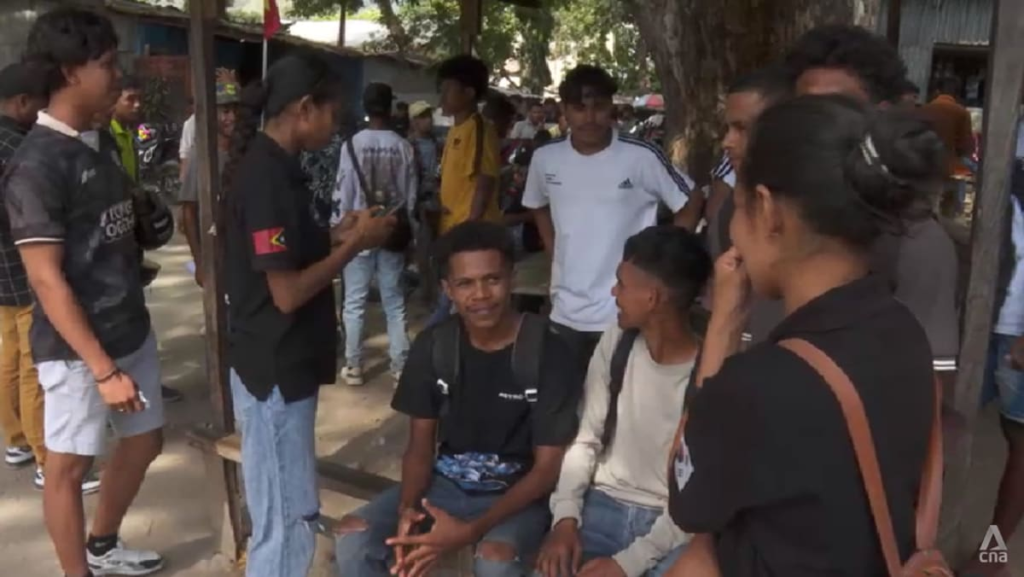HUNGRY FOR OPPORTUNITIES
The country is struggling to provide jobs for its people. Every day, young Timorese gather at recruitment centres in the capital Dili, hoping to find work overseas.
Milanoza Xavier da Costa, 24, applied for a job in South Korea in 2023 but is still waiting for an employer to take her on.
“I want to improve my professionalism, gain more experience and help stabilise my family’s finances,” she said.
“Since there are very few job opportunities here, I have no choice but to look for work abroad. Whatever the job is, I’ll take it … once I decide to go, I’ve already accepted the risks. Whatever work comes my way, I’ll just push through and do it.”
Economists say Timor-Leste must diversify its economy quickly and expand labour-intensive industries to provide jobs and reduce the country’s reliance on oil and gas revenues.
The country’s domestic production capacity is limited, with the value of its imports roughly two-thirds that of its gross domestic product, noted Joao Saldanha, founder of the Joao Saldanha University in Dili.
“We should be moving very fast … into the manufacturing and service sector,” he said.
“That’s the core of diversification that we’ve been talking about for a quarter century … there’s a lot of opportunities here to fulfil the domestic market first.”
Romualdo Antonio Soares da Silva, president of the Airport Administration and Air Navigation of Timor-Leste, added: “In the future, we should not rely too much on other countries.
“We must develop our own human resources, while continuing to work with advanced nations to guide and support us.”
In its 2026 General State Budget, the Timor-Leste government increased funding for its Human Capital Development Fund to US$20.6 million, up by US$3 million from the previous year.
The initiative supports more than 1,000 students through national and international scholarships in fields such as engineering, health, agriculture and public administration.
Read the full article here
